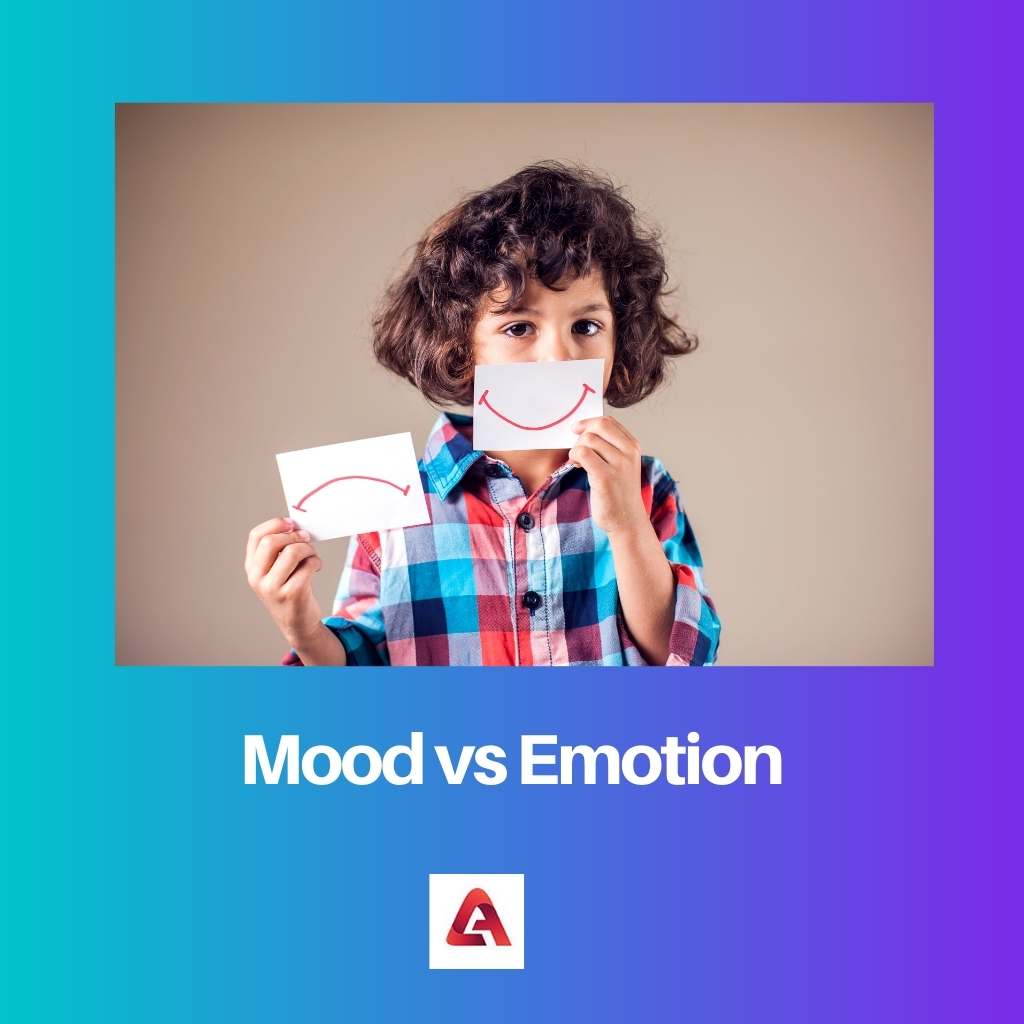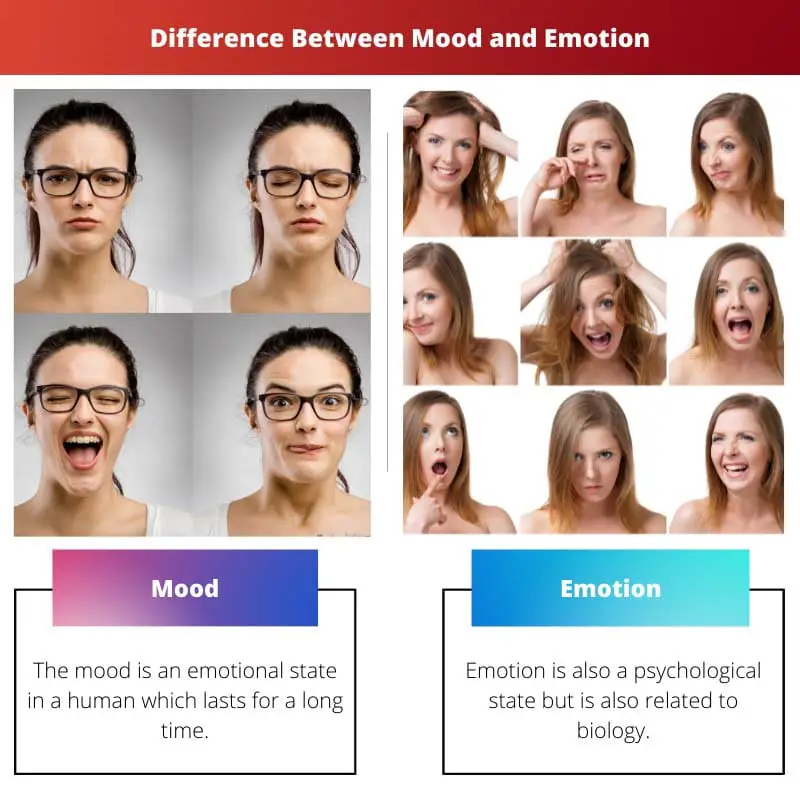Humans are the most intelligent creator of nature. This is because of their thinking capacity, sensitivity to different emotions and feelings, etc., so one of the major characteristics of humans, which is not so evolved in other animals, is emotions.
Sometimes we use the word mood interchangeably with emotion which is not correct. So here are a few differences between mood and emotion.
Key Takeaways
- Moods are prolonged, generalized feelings not necessarily tied to a specific event, while emotions are intense, short-lived reactions to a specific situation or stimulus.
- Moods can influence our overall emotional state and how we perceive events, while emotions directly impact our behavior and decision-making.
- Moods are less intense and more enduring than emotions, which tend to have a clear beginning and end.
Mood vs Emotion
Mood is a temporary state of mind or feeling, but it can also be used to describe an angry, sullen, or irritable state of mind. Emotion is a strong feeling based on the circumstances of a person or a relationship that a person has with others. It is a mental state caused by neurophysiological changes.

The mood is an emotional state in a human which lasts for a long time. But not that much longer than it can be called a personality trait. Mood develops due to many factors.
But it does not develop due to any experience or memory. It Is a psychological matter. Good moods are very good for people. In contrast, bad moods are very worse for them.
Emotion is also a psychological state but is also related to biology. These states happen due to the nervousness triggered by some past experiences.
It is seen that a person even gets emotional by looking at a pen. It’s not about the pen; it’s about the memory related to the pen.
Comparison Table
| Parameters of Comparison | Mood | Emotion |
|---|---|---|
| Origin | Old English | French |
| Durability | It may stay for a long time | It happens for a short interval of time |
| Nature | These are less affected | These affect a person at the extreme level |
| Expression | This may not be expressed | This is expressed |
| Reason | This does not happen due to any trigger | This happens due to a trigger effect |
What is Mood?
The word ‘mood’ originated from old English. The mood is an emotional state in a human which lasts for a long time. But not that much longer than it can be called a personality trait. Mood develops due to many factors.
But it does not develop due to any experience or memory. It Is a psychological matter. Good moods are very good for people. In contrast, bad moods are very worse for them.
Moods stay for a long time in a person. Mood affects the person’s behaviours and also mental state, but it is very less effective to the individual for the long term.
It happens, creates an impact on the person for a short time, and then is healed. These moods are normally categorized into two types’ good moods and bad moods.
Good moods are considered very productive and motivating. A person can achieve many things when in a good mood. This is very good for mental health as well.
The expression part is very less in this state. They cannot express it by hopping and crying. This mental state is invisible and can only be felt by the person. Bad moods are similarly very harmful.
A person in a bad mood can lead to many accidents in their own life. A bad mood can lead to a person to depression, stress and anxiety.

What is Emotion?
The nomenclature emotion originated from a French word. Emotion is a psychological state but is also related to biology.
These states happen due to the nervousness triggered by some past experiences. It is seen that a person even gets emotional by looking at a pen. It’s not about the pen; it’s about the memory related to the pen.
Emotion is developed in a person for a very short interval of time and vanishes very quickly. The emotion is mostly developed due to some experience or memories.
Emotions are very confusing s. A good memory can lead to a person crying after a long time. In contrast, bad memory can make a person very happy at a time.
Emotions are very extreme. As emotions are mostly attached to a loved person, family, or friends, those can be very harsh. These stay for a short time, but anything extreme may happen within that time due to their impact.
So an emotional person should be handled very carefully as, at that time, they are very delicate. Emotion can be expressed by crying, laughing, and other ways. Everyone has their own ways of expressing emotions.

Main Differences Between Mood and Emotion
- The word ‘mood’ originated from an Old English word. In contrast, the word ’emotion’ originated from a French word. Mood may stay for a long time. On the other hand, emotion may stay for a short interval of time.
- Moods are less effective to an individual, but on the other hand, emotions affect a person at an extreme level.
- Mood may not be expressed, but emotions are expressed.
- The mood does not happen due to any trigger, but emotions happen due to a trigger effect.




